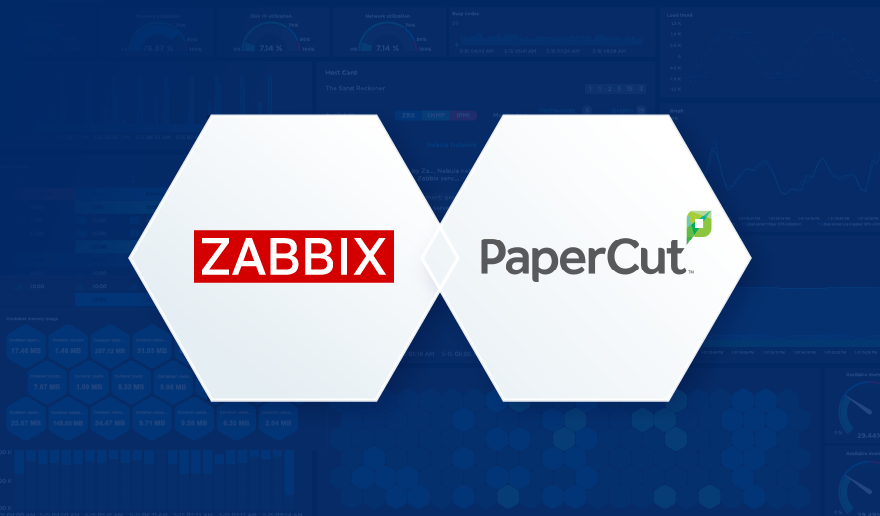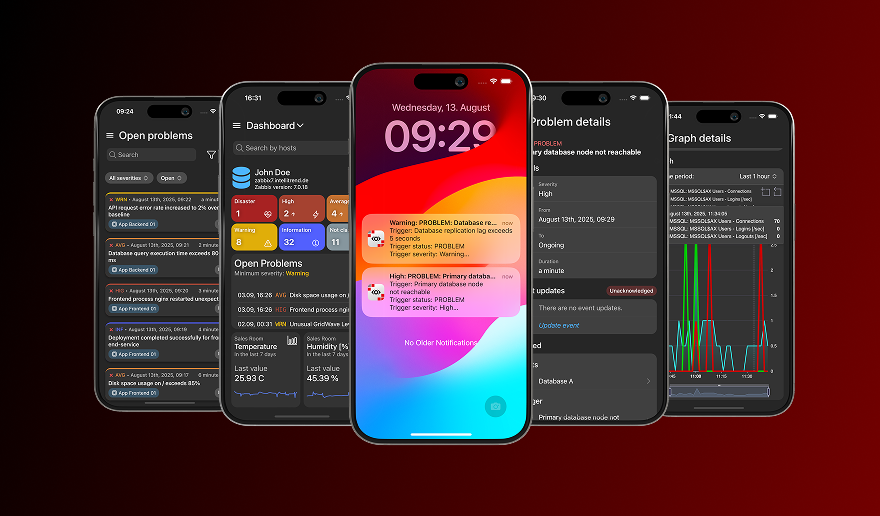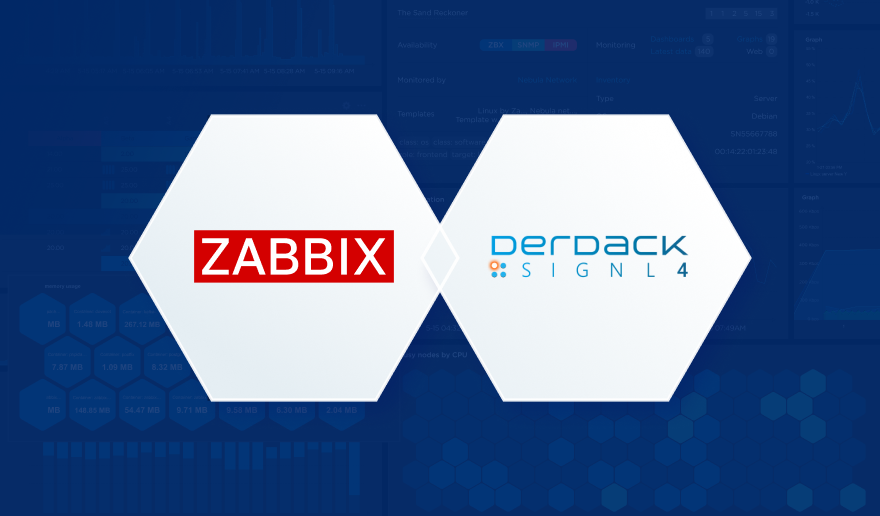In this article, we will explore the capabilities of the new asynchronous modules of the zabbix_utils library. Thanks to asynchronous execution, users can expect improved efficiency, reduced latency, and increased flexibility in interacting with Zabbix components, ultimately enabling them to create efficient and reliable monitoring solutions that meet their specific requirements.
There is a high demand for the Python library zabbix_utils. Since its release and up to the moment of writing this article, zabbix_utils has been downloaded from PyPI more than 15,000 times. Over the past week, the library has been downloaded more than 2,700 times. The first article about the zabbix_utils library has already gathered around 3,000 views. Among the array of tools available, the library has emerged as a popular choice, offering developers and administrators a comprehensive set of functions for interacting with Zabbix components such as Zabbix server, proxy, and agents.
Considering the demand from users, as well as the potential of asynchronous programming to optimize interaction with Zabbix, we are pleased to present a new version of the library with new asynchronous modules in addition to the existing synchronous ones. The new zabbix_utils modules are designed to provide a significant performance boost by taking advantage of the inherent benefits of asynchronous programming to speed up communication between Zabbix and your service or script.
You can read the introductory article about zabbix_utils for a more comprehensive understanding of working with the library.
Benefits and Usage Scenarios
From expedited data retrieval and real-time event monitoring to enhanced scalability, asynchronous programming empowers you to build highly efficient, flexible, and reliable monitoring solutions adapted to meet your specific needs and challenges.
The new version of zabbix_utils and its asynchronous components may be useful in the following scenarios:
- Mass data gathering from multiple hosts: When it’s necessary to retrieve data from a large number of hosts simultaneously, asynchronous programming allows requests to be executed in parallel, significantly speeding up the data collection process;
- Mass resource exporting: When templates, hosts or problems need to be exported in parallel. This parallel execution reduces the overall export time, especially when dealing with a large number of resources;
- Sending alerts from or to your system: When certain actions need to be performed based on monitoring conditions, such as sending alerts or running scripts, asynchronous programming provides rapid condition processing and execution of corresponding actions;
- Scaling the monitoring system: With an increase in the number of monitored resources or the volume of collected data, asynchronous programming provides better scalability and efficiency for the monitoring system.
Installation and Configuration
If you already use the zabbix_utils library, simply updating the library to the latest version and installing all necessary dependencies for asynchronous operation is sufficient. Otherwise, you can install the library with asynchronous support using the following methods:
- By using pip:
~$ pip install zabbix_utils[async]
Using [async] allows you to install additional dependencies (extras) needed for the operation of asynchronous modules.
- By cloning from GitHub:
~$ git clone https://github.com/zabbix/python-zabbix-utils ~$ cd python-zabbix-utils/ ~$ pip install -r requirements.txt ~$ python setup.py install
The process of working with the asynchronous version of the zabbix_utils library is similar to the synchronous one, except for some syntactic differences of asynchronous code in Python.
Working with Zabbix API
To work with the Zabbix API in asynchronous mode, you need to import the AsyncZabbixAPI class from the zabbix_utils library:
from zabbix_utils import AsyncZabbixAPI
Similar to the synchronous ZabbixAPI, the new AsyncZabbixAPI can use the following environment variables: ZABBIX_URL, ZABBIX_TOKEN, ZABBIX_USER, ZABBIX_PASSWORD. However, when creating an instance of the AsyncZabbixAPI class you cannot specify a token or a username and password, unlike the synchronous version. They can only be passed when calling the login() method. The following usage scenarios are available here:
- Use preset values of environment variables, i.e., not pass any parameters to AsyncZabbixAPI:
~$ export ZABBIX_URL="https://zabbix.example.local"
api = AsyncZabbixAPI()
- Pass only the Zabbix API address as input, which can be specified as either the server IP/FQDN address or DNS name (in this case, the HTTP protocol will be used) or as an URL of Zabbix API:
api = AsyncZabbixAPI(url="127.0.0.1")
After declaring an instance of the AsyncZabbixAPI class, you need to call the login() method to authenticate with the Zabbix API. There are two ways to do this:
- Using environment variable values:
~$ export ZABBIX_USER="Admin" ~$ export ZABBIX_PASSWORD="zabbix"
or
~$ export ZABBIX_TOKEN="xxxxxxxx"
and then:
await api.login()
- Passing the authentication data when calling login():
await api.login(user="Admin", password="zabbix")
Like ZabbixAPI, the new AsyncZabbixAPI class supports version getting and comparison:
# ZabbixAPI version field ver = api.version print(type(ver).__name__, ver) # APIVersion 6.0.29 # Method to get ZabbixAPI version ver = api.api_version() print(type(ver).__name__, ver) # APIVersion 6.0.29 # Additional methods print(ver.major) # 6.0 print(ver.minor) # 29 print(ver.is_lts()) # True # Version comparison print(ver < 6.4) # True print(ver != 6.0) # False print(ver != "6.0.24") # True
After authentication, you can make any API requests described for all supported versions in the Zabbix documentation.
The format for calling API methods looks like this:
await api_instance.zabbix_object.method(parameters)
For example:
await api.host.get()
After completing all needed API requests, it is necessary to call logout() to close the API session if authentication was done using username and password, and also close the asynchronous sessions:
await api.logout()
More examples of usage can be found here.
Sending Values to Zabbix Server/Proxy
The asynchronous class AsyncSender has been added, which also helps to send values to the Zabbix server or proxy for items of the Zabbix Trapper data type.
AsyncSender can be imported as follows:
from zabbix_utils import AsyncSender
Values can be sent in a group, for this it is necessary to import ItemValue:
import asyncio
from zabbix_utils import ItemValue, AsyncSender
items = [
ItemValue('host1', 'item.key1', 10),
ItemValue('host1', 'item.key2', 'Test value'),
ItemValue('host2', 'item.key1', -1, 1702511920),
ItemValue('host3', 'item.key1', '{"msg":"Test value"}'),
ItemValue('host2', 'item.key1', 0, 1702511920, 100)
]
async def main():
sender = AsyncSender('127.0.0.1', 10051)
response = await sender.send(items)
# processing the received response
asyncio.run(main())
As in the synchronous version, it is possible to specify the size of chunks when sending values in a group using the parameter chunk_size:
sender = AsyncSender('127.0.0.1', 10051, chunk_size=2)
response = await sender.send(items)
In the example, the chunk size is set to 2. So, 5 values passed in the code above will be sent in three requests of two, two, and one value, respectively.
Also it is possible to send a single value:
sender = AsyncSender(server='127.0.0.1', port=10051)
resp = await sender.send_value('example_host', 'example.key', 50, 1702511920))
If your server has multiple network interfaces, and values need to be sent from a specific one, the AsyncSender provides the option to specify a source_ip for sent values:
sender = AsyncSender(
server='zabbix.example.local',
port=10051,
source_ip='10.10.7.1'
)
resp = await sender.send_value('example_host', 'example.key', 50, 1702511920)
AsyncSender also supports reading connection parameters from the Zabbix agent/agent2 configuration file. To do this, you need to set the use_config flag and specify the path to the configuration file if it differs from the default /etc/zabbix/zabbix_agentd.conf:
sender = AsyncSender(
use_config=True,
config_path='/etc/zabbix/zabbix_agent2.conf'
)
More usage examples can be found here.
Getting values from Zabbix Agent/Agent2 by item key.
In cases where you need the functionality of our standart zabbix_get utility but native to your Python project and working asynchronously, consider using the AsyncGetter class. A simple example of its usage looks like this:
import asyncio
from zabbix_utils import AsyncGetter
async def main():
agent = AsyncGetter('10.8.54.32', 10050)
resp = await agent.get('system.uname')
print(resp.value) # Linux zabbix_server 5.15.0-3.60.5.1.el9uek.x86_64
asyncio.run(main())
Like AsyncSender, the AsyncGetter class supports specifying the source_ip address:
agent = AsyncGetter(
host='zabbix.example.local',
port=10050,
source_ip='10.10.7.1'
)
More usage examples can be found here.
Conclusions
The new version of the zabbix_utils library provides users with the ability to implement efficient and scalable monitoring solutions, ensuring fast and reliable communication with the Zabbix components. Asynchronous way of interaction gives a lot of room for performance improvement and flexible task management when handling a large volume of requests to Zabbix components such as Zabbix API and others.
We have no doubt that the new version of zabbix_utils will become an indispensable tool for developers and administrators, helping them create more efficient, flexible, and reliable monitoring solutions that best meet their requirements and expectations.







 Prev Post
Prev Post 




